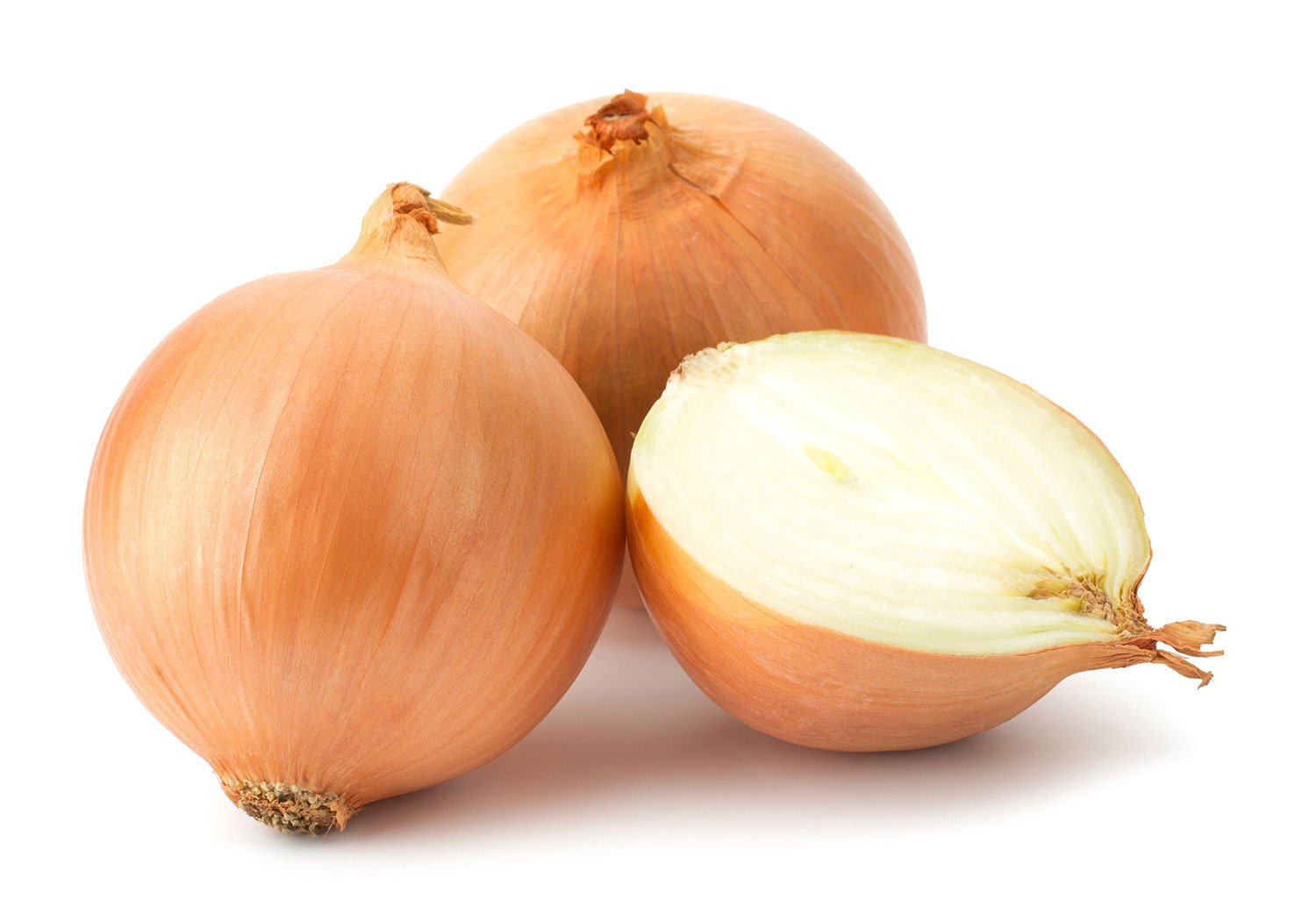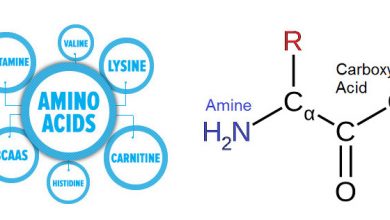Learn about the properties and benefits of flaxseed
Flaxseeds have been consumed for at least 6,000 years, making them one of the world’s first great nutrients. What are the properties of flaxseed that has become one of the most popular foods?
It contains anti-inflammatory omega-3 fatty acids, and an antioxidant called lignan, which helps with hormonal balance and more.
Flaxseeds are one of the things that nutritionists and traditional medicine recommend to solve problems and diseases. This seed can strengthen critical internal organs and help to lose weight.
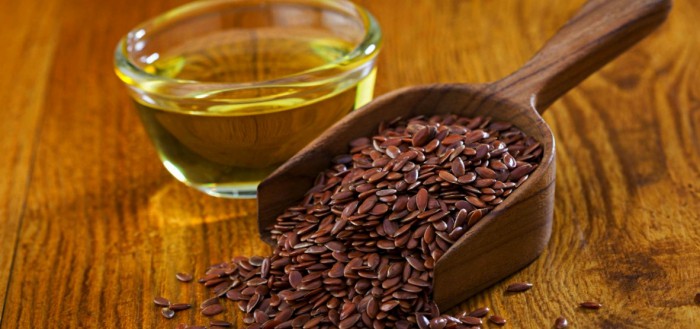
Facts about flaxseed:
People have long known that it has many health benefits.
Contains fiber, fat, protein, and many minerals and vitamins.
These nutrients may protect against cancer, diabetes, and cardiovascular problems.
Calories: 37
Protein: 1.3 g
Carbohydrates: 2 g
Fiber: 1.9 grams
Total fat: 3 grams
Saturated fat: 0.3 g
Trans fat: 0.5 g
Omega 3 fatty acids: 1,597 mg
Vitamin B1: 8%
Vitamin B6: 2%
Folate: 2%
Calcium: 2 ٪
Iron: 2%
Magnesium: 7 ٪
Phosphorus: 4%
Potassium: 2%
Alpha-linolenic acid
Omega-3 abundance; About 5 to 8 grams of grain per day is enough to provide omega-3.
Flaxseed is about 50 to 55 percent of its total fatty acids, so it helps reduce the risk of heart disease.
About 28% of this grain is fiber, 25% is soluble fiber, which reduces the absorption of cholesterol and glucose, and 75% is insoluble fiber, which increases waste production and reduces the passage of material through the intestine.
Benefits of flaxseed for treating diseases and strengthening the body
1- Increases positive abdominal movements and activity
2- Reduces the risk of colon cancer
3- Lowers blood cholesterol and prevents obesity
Flaxseed protects DNA and liposome chemicals and has antioxidant and anti-cancer properties.
Add these seeds to your diet to prevent heart disease and various types of breast, prostate, and colon cancer.
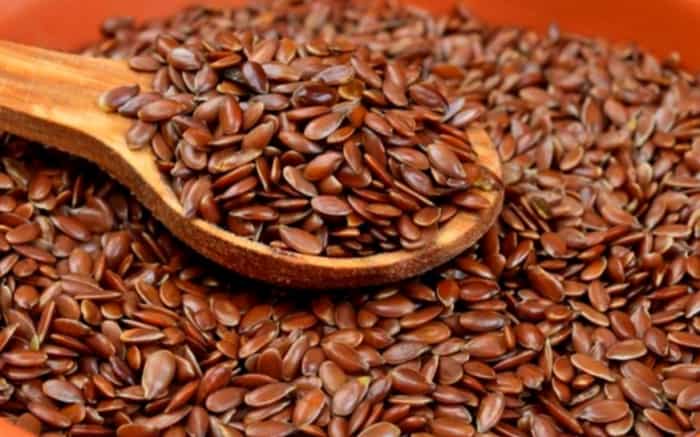
Flaxseed is rich in omega-3:
If you are a vegetarian or do not eat fish, flaxseed can be the best source of omega-3 fats.
Flaxseed is a rich source of lignans that can reduce the risk of cancer:
Lignans have antioxidant and estrogenic properties that can help reduce the risk of cancer and improve health.
Studies show that people who eat flaxseed, especially after menopause, have a lower risk of breast cancer.
Men can also benefit from eating flaxseed because it significantly reduces the risk of prostate cancer. Flaxseed also appears to have the potential to prevent colon and skin cancer in laboratory and animal studies.
Flaxseed is rich in dietary fiber:
Just one tablespoon of flaxseed contains 3 grams of fiber, which is 8 to 12 percent of the recommended amount for men and women, respectively. Flaxseed contains two nutrient solution types (20 to 40%) and solution (60-80%).
These two fibers are fermented by bacteria in the large intestine, leading to regular bowel movements.
Flaxseed improves cholesterol:
Another benefit of flaxseed is its ability to lower cholesterol. In a study of high cholesterol people, consuming three tablespoons (30 grams) of flaxseed powder for three months reduced terrible cholesterol.
Flaxseed lowers blood pressure:
Studies on flaxseed have also shown its natural ability to lower blood pressure. Although it may seem insignificant, a 41% reduction in blood pressure can reduce the risk of death from stroke by 10% and heart disease by 7%.
Flaxseeds are rich in protein:
Flaxseeds are an excellent source of plant proteins. Flaxseed protein is rich in amino acids.
Flaxseed protein helps improve immune system function, lower cholesterol, prevent tumors, and have antifungal properties.
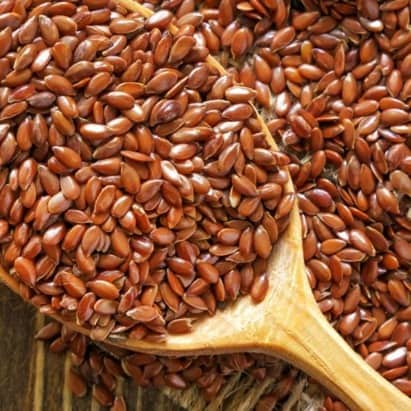
Flaxseed helps control blood sugar:
Type 2 diabetes is a significant problem worldwide. High blood sugar levels also characterize it due to the inability to secrete or resist insulin. The effect of lowering blood sugar is significantly due to the fiber content of the flaxseed solution. Research has shown that fiber lowers blood sugar.
Flaxseed helps control weight:
If you like snacks, you may want to add flaxseed to your drink. The feeling of reduced hunger is most likely due to the soluble fiber content in flaxseed. It reduces stomach digestion, stimulates hormones and controls appetite, and makes you feel full.
A flaxseed diet can help control weight by suppressing hunger and increasing satiety.
Weight loss is one of the essential benefits of flaxseed.
How to use flaxseed: To lose weight, you can brew 2 cups of flaxseed every day, use flaxseed powder before meals to reduce appetite or food to control digestion and reduce fat, bloating, and cleanse the gastrointestinal tract.
Flaxseed can be multi-purpose:
Flaxseed can be added to many common foods. Try the following:
Add them to water and drink as part of your daily fluids.
Flaxseed is good for skin and hair:
Why is flaxseed good for hair? The benefits of flaxseed for hair include radiance, resilience, and damage resistance. The fat in flaxseed provides essential fatty acids and B vitamins to the skin and hair, helping reduce dryness.
It can also improve the symptoms of acne and eczema. There are the same benefits to eye health because flaxseed can help reduce dry eye syndrome due to its lubricating effects.
Flaxseed oil is another excellent option for skin, nails, eyes, and hair because it has a high concentration of healthy fats.
If you want healthier skin, hair, and nails, add two tablespoons of it to the smoothie. It can also be mixed with essential oils and used daily as a skin moisturizer because it penetrates the skin and reduces dryness.
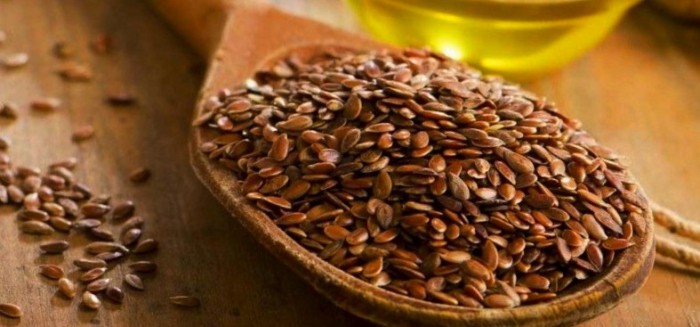
Flaxseed is gluten-free:
Using flaxseed is a great way to replace gluten-containing seeds in the instructions naturally. Cereals, especially those containing gluten, are difficult for many people to digest, but flaxseed is usually anti-inflammatory.
Flaxseed helps reduce menopausal symptoms and hormone imbalances:
Evidence shows that flaxseed has many benefits for postmenopausal women. Flaxseed can be used as an alternative treatment for hormonal imbalances due to its properties.
Due to the ability of flaxseed to balance estrogen, it may help reduce the risk of osteoporosis.
Flaxseed protects against radiation:
Studies have shown that lignans in flaxseed can help protect against radiation.
Flaxseed has been used to treat the following:
- ovarian cancer
- Cardiovascular disease
- Metabolic syndrome
- Diabetes
- Asthma
- Inflammation
Flaxseed has long been used in acupuncture to improve health, prevent and treat a wide range of diseases, many of which contribute to skin health. A study published in 2010 shows that consuming flaxseed oil can reduce skin sensitivity and skin roughness and improve the skin.
dangers:
The nutrients in flaxseed may not be suitable for everyone.
Excessive consumption of flaxseed can lead to the following:
Flatulence and bloating
stomach ache
nausea
Constipation or diarrhea
In people with intestinal obstruction, flaxseed can cause or worsen these symptoms.
Raw and unripe flax seeds are not suitable for consumption because they may be toxic and should always be consumed with plenty of fluids.
Women are advised not to take it during pregnancy because it has adverse effects and may not be suitable for breastfeeding.
It is also possible that the phytoestrogens in flaxseed interfere with birth control pills or hormone therapy.
Anyone taking medication for diabetes should consult a doctor before consuming flaxseed in their diet.
Omega-3 fatty acids can increase the risk of bleeding if used with a blood-thinning drug such as warfarin. Omega-3 supplements or flaxseed products, or blood thinners should only be used after consulting a health professional.
How much should be consumed?
In general, one or two tablespoons is a fair amount to ensure a significant amount of flaxseed properties.
also read:
Properties and health benefits of orange juice
Malnutrition in children, its causes, symptoms, and treatment
Familiarity with 38 properties and benefits of fenugreek for body health




